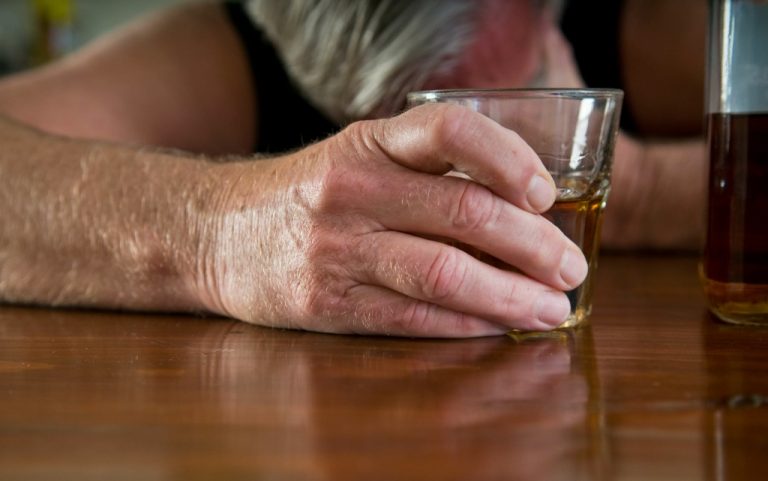For many people, fully living the promises of the program first requires long-term sobriety and recovery. Being California sober — only smoking weed and taking psychedelics — may be all the rage, but it may not be a great option for people who struggle with addiction issues. Even when you take psychedelics off the table, using cannabis when you’re in recovery is not an approach that addiction specialists condone. When Roy got back from Iraq in 2007 after two years overseas, things changed. “After my deployment ended, alcohol started taking over my life,” he says.
We’re Recovery Unplugged, a behavioral health initiative bringing effective treatment right to your home. Because if there’s one thing more haunting than millions of addiction deaths, it’s knowing they’re preventable. There are a million different opinions online, but when it comes to your https://ecosoberhouse.com/ life, health and wellness only peer reviewed reputable data matters. At Recovery Unplugged, all information published on our website has been rigorously medically reviewed by a doctorate level medical professional, and cross checked to ensure medical accuracy. At Recovery Unplugged, we treat marijuana abuse very seriously. Our goal is to help people see the impact of abuse on their lives.

I’m in Recovery from Alcoholism … Can I Smoke Marijuana Occasionally?
However, by evading these problems instead of treating them, the underlying root cause of their prevailing addiction persists and worsens with time, eventually triggering a full-blown relapse. Reflecting on these questions will tell you where you need to draw the line. It is a way of introspection and self-exploration so that you can focus on your weak points. Knowing these weak points means knowing you have them and beginning to transform your life in a way that is always going to keep you moving forward in recovery. Another draw of AA for many is that it can put the meaning back in life, helping you find a power greater than yourself, and getting you involved in service with others in your community who need help.
- However, some can have a high THC content, so it is always safe to check for the information before you use one.
- I just want your peoples insight on if this is a “healthy” alternative (obviously better then putting poison in your body) or if it’s better to go stone cold.
- BetterHelp can connect you to an addiction and mental health counselor.
- The theory is that through a dedicated commitment to the church that celebrates life, an alcoholic can overcome their sickness.
A Recovery Roundtable Wed. Sept. 17th
Similar to the desired outcome of MAT, those who use cannabis to support their recovery say it helps them manage symptoms of anxiety, depression, or chronic pain. And because of that, their overall quality of life improves too. Harm reduction acknowledges that drug and alcohol use are multifaceted issues and that some forms of substance use are safer than others. It also considers quality of life and overall well-being as components of a successful intervention rather than complete abstinence. A growing body of scientific research is lending support to treatment approaches such as harm reduction models or moderation management, which do not demand complete abstinence. Simply put, sobriety is being free from the influences of drugs or alcohol.
Are you struggling to quit using cannabis?
MHA Screening is an educational program intended to help inform people about options they have in getting help for mental health issues. It may suggest tools and resources that offer information, treatment services, self-help (or “DIY”) tools, and/or ways to connect with others. For any and all suggestions, comments, or questions, please contact Mental Health America. When we discuss addiction, we often think of substances that create physical dependency. However, dismissing how to stay sober without aa the possibility of cannabis dependency, especially psychological dependency, would be naive.
I use weed recreationally every once in a while.
Our nationwide network of addiction treatment and recovery centers in New Jersey and Los Angeles. Contact TruPath today to ask about what treatment paths are best for you, and how we can help keep you on the path of drug addiction treatment. For people in recovery, avoiding cannabis use may be part of a relapse prevention plan during drug addiction treatment. Avoiding normal triggers that may lead to a desire to smoke marijuana will help, as well as being surrounded by loved ones who can offer support. Searching online reveals many sources and tips for sober living.
- These types of restrictive measures are often debated in the recovery community.
- The first is the belief that those who suffer from alcohol use disorder will never be able to control their drinking for any length of time.
- “But I have to be careful about my brain because it’s a really dangerous spot for me.” For people like Max F.
- “The way my addiction speaks to me is, ‘You could probably do acid or mushrooms once a year camping and you’ll be fine, you won’t relapse,’” he said.
The Adult Use of Marijuana Act continues to usher in cultural and legal acceptance of weed in the US. But this shifting perspective presents problems when it comes to people in recovery for drug and alcohol abuse. As more normies start accepting the drug as normal, recovering addicts and alcoholics beg the question, “Is it okay to smoke weed in recovery? Let’s start by looking at alcohol, the most unilaterally legalized substance on the market today.
AA does not require you to sign up for anything, nor does AA require the payment of any dues. All AA groups and fellowships are fully self-supporting through the contributions. This lack of any preset order of authority and no dues has perplexed business people for decades. Sobriety is generally understood as the state of not being under the influence of any intoxicating substances.
- I see it as a fairly harmless way to just relax and unwind on the odd occasion.
- There are so many trained coaches, counselors, and psychologists out there happy to support you on your recovery journey, many of whom are in recovery themselves or whose lives have otherwise been touched by addiction.
The basic idea is that any harm reduction is a step in the right direction and that small changes can significantly improve people’s lives. If you have experienced problems with heavy drinking or binge drinking, but don’t suffer from a substance use disorder, you could benefit from a program based on a harm reduction model. Its approach aligns with a body of research that supports incorporating harm reduction – cutting back drinking, for instance – into addiction treatment. In 2023, the National Institute on Alcohol Abuse and Alcoholism published an article that pointed to the efficacy of treating Alcohol Use Disorder (AUD) with more than just abstinence protocols.
You really need to examine yourself and your well-being when considering your personal Substance abuse recovery journey. Changes Healing Center, a Joint Commission-accredited recovery and treatment center in Phoenix, has had tremendous success in helping people get clean and sober. If you or a loved one needs more help than AA alone can provide, we can help.
What is Sobriety? Defining & Navigating Lifelong Commitment

Join our supportive sober community where each day becomes a step towards personal growth and lasting positive change. Like many aspects of alcohol addiction treatment, the best approach for you is dependent on factors unique to your circumstances. “I’m not against 12-step programs, but I cannot ignore the lack of cultural and social competence of some of those people in those meetings,” said Khadi A. Oluwatoyin, an attorney based in Tulsa. “It was hard to consider myself sober without AA because of how I was raised, even though I’m so sober that I don’t even consume caffeine,” Einbinder said. He specifically resents the term “white-knuckling,” a phrase used to describe abstinence without 12-step recovery.